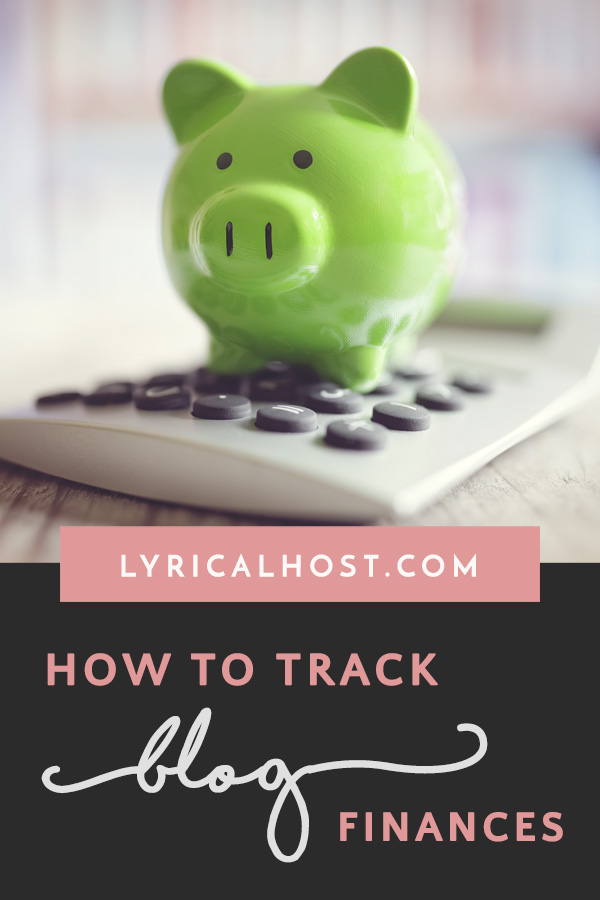This is a guest post by Cyrus Vanover, a former accountant who now works as a freelance financial writer. He is also the founder of the personal finance blog, Frugal Budgeter. Based in the mountains of Virginia, he can be found hiking the local trails, listening to 80s music, and reading books on military history in his spare time.
If you’re like most, you probably started your blog as a way to earn money. Maybe you did it as a side hustle to supplement the income from your job, or perhaps you were inspired by lofty blog income reports and dreamed of earning enough from your blog to replace the income from your job.
As many aspiring bloggers quickly learn, there are many pieces to the blogging puzzle. You have to learn WordPress, SEO, Pinterest, email marketing, and also how to write amazing content that draws readers in and keeps them coming back to your blog for more. But one thing that is often overlooked by those who teach courses on building money-making blogs is the issue of keeping track of your blog’s finances – or bookkeeping, as it is also known.
Bookkeeping doesn’t have to be complicated or expensive. In fact, you can easily do it yourself without having to hire someone to do the job for you. If you can master Pinterest (a platform I find to be terribly complex), then you can do your own bookkeeping.
Currently reading: How To Keep Track Of Your Blog's Finances Click To Tweet
Why Is Bookkeeping Important?
Your blog is a legitimate business. Because of this, it’s important to keep track of all of your income and expenses to see how much money you are making. Keeping a record of your blog’s finances is also important for tax purposes.
There are two main things you need to track – your income and your expenses. Your income is the total of all earnings in a period. For bookkeeping purposes, a period is usually one month or one year. No amount is too small to be included, even if it’s just $1. It all counts.
The expenses you incur to run your blog will decrease your earnings, so you want to keep track of all of the money you spend on your blog to make sure you report the correct amount of earnings on your tax forms. Examples of expenses may include web hosting, your email marketing platform, paid advertising, and fees paid to freelancers and virtual assistants.
What constitutes a business expense may vary depending on which country you live in. Be sure to consult with a tax professional to find out what qualifies.
Knowing how much money you are making is also a good way to track your blog’s progress. Realizing steady financial gains is important for staying motivated so you don’t lose interest and your blog continues to grow.
How Do You Determine Revenue?
The easiest way to determine if your business is profitable is to prepare a simple profit and loss statement each month. You will also want to prepare one at the end of the year that includes all 12 months – an annual statement. These financial statements are very easy to create, and you should be able to make one in just a few minutes.
In a profit and loss statement, you simply list your income and expenses. You then subtract your expenses from your income to determine how much money you made for the month (or year). It really is that simple!
Here’s an example of what a monthly profit and loss statement for a blog might look like (feel free to make a copy and edit for your own website!).
In this example, the total income for the month came to $9,967, and the total expenses came to $2,009. Therefore, the profit for the month is $7,958 (income – expenses).
Easy peasy!
A Free Way to Keep up with Your Income and Expenses
There’s a very simple strategy you can use to keep up with all of your monthly income and expenses. You don’t need to purchase expensive bookkeeping software to do this. In fact, you may be able to use this simple (and free) method for years before needing to upgrade to professional bookkeeping software.
The strategy is to keep track of all of your income and expenses in an Excel spreadsheet.
Just make a new spreadsheet for each year you operate your blog. In your spreadsheet, create 12 tabs, one for each month. For each month, you simply record all of your income and expenses in that month’s tab. You can even create a profit and loss statement beneath your entries.
You will also want to keep copies of all receipts and invoices from the things you purchase to run your blog. You can print your receipts and invoices and store them in a file when you receive them. It’s also a good practice to to store digital copies of these invoices and receipts.
If you use a spreadsheet to keep up with your blog’s finances, be sure to save one or more backup copies every time you update it. This is an important record you are creating, and you don’t want to risk losing it to a crashed hard drive. Several companies offer free cloud storage accounts you can use including Dropbox, Google Drive, Microsoft OneDrive, Box, pCloud, and others. Backups can also be saved to a USB thumb drive. When it comes to important documents, you can’t have too many backups.
How Often Should You Update Your Financial Records?
When it comes to the task of bookkeeping, you may be wondering how often should you do it. Is it okay to set aside some time at the end of the month to update your financial records?
Whenever you receive notification that a company is transferring money to you (via Paypal, bank transfer, etc.) that you’ve earned from your blogging efforts, you need to make a record of it immediately. The same goes for your expenses. You don’t want to delay in recording anything.
The reason why it’s important to update your bookkeeping records as soon as possible after receiving money or incurring an expense is because you may forget to record it at a later date. Despite our best intentions, we’re all human, and it’s too easy to forget things if we put them off till later.
Thankfully, it takes very little time to update your records. You should be able to update your spreadsheet and save a backup every time something changes in less than a minute.
When Should You Upgrade to Bookkeeping Software?
As I’ve already mentioned, many bloggers can easily keep track of their blog’s finances by using an Excel spreadsheet. It’s free, it’s quick to update, and it’s simple. Most affiliates and ad networks pay once a month, so it won’t require much of your time to record those transactions.
There may come a point, however, when it does make sense to upgrade to bookkeeping software. That point is when your blog has multiple financial transactions a day. This could occur when you start promoting and selling ebooks, online courses, printable downloads, and other things. When the frequency of financial transactions increases, professional bookkeeping software can help you keep things organized.
Most bookkeeping software applications are not expensive. They range in price from free to $50 a month. Be sure to compare prices and features before making a decision. Wave Accounting is a free option to consider if you are on a budget.
Most bookkeeping applications are also online these days, which means you can access your financial records from anywhere. This also allows your bookkeeper (if you decide to use one) to access and update your records remotely.
When Should You Hire a Bookkeeper?
Your time as a blogger is important. There are only so many hours in a day, after all, and your number one priority is to do more of the things that grow your income – like creating new content. At a certain point in their blogging journeys, many blog owners decide to hire virtual assistants, freelancers, and others to free up some of their time. As your blog evolves into an enterprise, spending some of your earnings to free up some of your time may be worth it. It’s a good problem to have!
When or if you decide to hire a bookkeeper is a personal choice that you will have to make for yourself. There is no specific point in the blogging journey where bookkeepers are routinely hired. It’s a decision that will have to make sense for your unique situation and goals.
These days, most bookkeepers work remotely, and it’s possible you may never meet yours in person. Your virtual bookkeeper can update your financial records every day from the information in the sales platform you are using. You can also forward other financial information to your bookkeeper via email.
If you do decide to hire a virtual bookkeeper, be sure to shop around and compare prices. Ask for references and find out how how long candidates you are considering have been offering bookkeeping services.
Keep It Simple
Maintaining your blog’s financial records doesn’t have to be complicated or expensive. You don’t need a degree in accounting or a working knowledge of bookkeeping software to do it. All it takes is a simple spreadsheet, a free cloud storage account or USB thumb drive to back up your records, and a little bit of your time.
Your blog is a business, and you should treat it as such. Keeping good financial records isn’t just a good idea – it’s a must. With just a little preparation and practice, keeping your blog’s financial records in order will be very easy and will take very little of your time.
Found this post useful? Pin it for someone else to discover!







No Comments